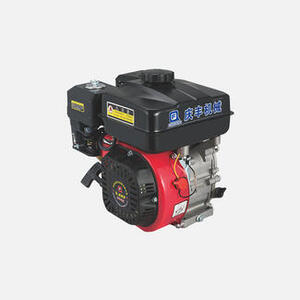-
 Encontrar enMiembros
Encontrar enMiembros Encontrar enVideos
Encontrar enVideos Encontrar enCanales
Encontrar enCanales
This website uses cookies to ensure you get the best experience on our website.
To learn more about our privacy policy haga clic aquíPreferencia de privacidad
- Etiquetas - #Gas Engine
-
- Última actualización 17 de mayo de 2021 0 comentarios, 275 vistas, 0 likes
More from qing feng
More in Politics
Related Blogs
Archivo
The Gas Engines’ Efficiency
Cuerpo
A gasoline engine is an internal combustion engine that runs on gaseous fuel, such as coal gas, producer gas, biogas, landfill gas or natural gas. In the United Kingdom, the term is unambiguous. In the United States, due to the widespread use of "gas" as an abbreviation for gasoline (petrol), such an engine might also be called a gaseous-fueled engine or natural gasoline engine or spark ignited.
Generally in modern usage, the term gasoline engine refers to a heavy-duty industrial engine capable of running continuously at full load for periods approaching a high fraction of 8,760 hours per year, unlike a gasoline automobile engine, which is lightweight, high-revving and typically runs for no more than 4,000 hours in its entire life. Typical power ranges from 10 kW (13 hp) to 4 MW (5,364 hp).
When considering engine efficiency one should consider whether this is based on the lower heating value (LHV) or higher heating value (HHV) of the gas. Engine manufacturers will typically quote efficiencies based on the lower heating value of the gas, i.e. the efficiency after energy has been taken to evaporate the intrinsic moisture within the gas itself. Gas distribution networks will typically charge based upon the higher heating value of the gas. i.e., total energy content.
A quoted engine efficiency based on LHV might be say 44% whereas the same engine might have an efficiency of 39.6% based on HHV on natural gas. It is also important to ensure that efficiency comparisons are on a like-for-like basis. For example, er use electrically driven pumps to drive engine cooling water, and the electrical usage can sometimes be ignored giving a falsely high apparent efficiency compared to the direct-drive engines.
The above is the related knowledge of gasoline engines for everyone. As a high-quality horizontal petrol engine manufacturer, we have many products. Welcome to visit our official website http://sprayer-china.com/ for more relevant information.











Comentarios